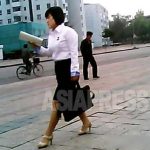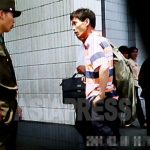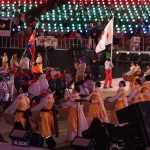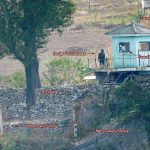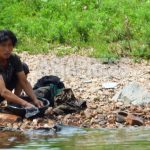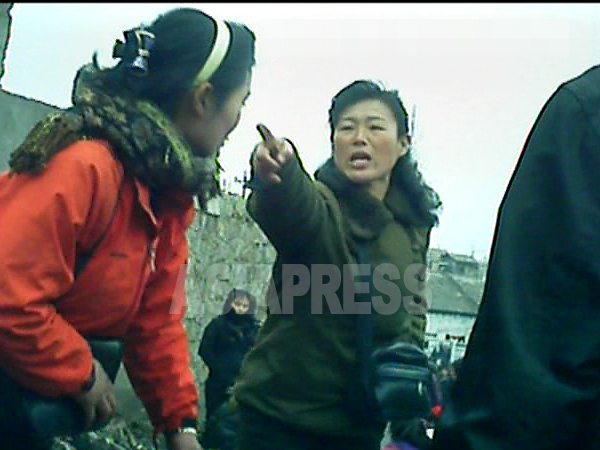
Since the Kim Jong-un regime launched its strict measures against the coronavirus, control over residents has tightened each day, and in particular, there has been a massive crackdown on what are considered "non-socialist and anti-socialist acts," with arrests, detentions, and deportations to remote areas. We'll be reporting on the reality of "Growing Radicalization of People's Control" in this series. In this first article, we will discuss the institutionalization of tip-off rewards that have become commonplace in the most recent crackdown. It is said that people suffering from poor living conditions are reporting on acquaintances for cash, and as a result, a desperate atmosphere is spreading (Kang Ji-won / ISHIMARU Jiro).
◆ Crackdown implemented nationwide since September
Our reporting partner, who lives in an urban area of North Hamkyung Province, told us about the grim and gloomy atmosphere there in early December:
"A lot of people came to the police station to report incidents because they could receive reward money. It's because they are struggling to make ends meet. As a result, many people have been getting arrested. Residents have been cautious of each other and they no longer even trust their relatives."
Needless to say, this reward system has been initiated and implemented by the authorities to encourage snitching. As people's living conditions have become more difficult, some impoverished residents have aggressively sought out and reported others to receive cash rewards. As a result, suspicion and distrust has spread among the people, causing neighbours and relatives to keep away from each other and engage in frequent quarrels.
After receiving this news, ASIAPRESS conducted investigations in various areas. In Chongjin, Hoeryong, and Musan in North Korea, as well as in Ryanggang and North Pyongan Provinces, a tip-off reward system has been implemented since September and has recently been found to be very "effective." In the months since, the system seems to have been implemented nationwide.
◆ How the secret reward system operates
According to the investigation conducted by our reporting partners, the reward system's rules are as follows:
- At the center is the "Coalition Command for Non-Socialist and Anti-Socialist Sweeping Operations" (from now on referred to as the "Coalition Command").
- Reward money is paid in ranges from 5,000 won to 200,000 won. People must sign and seal a form to receive money.
※ 1 USD is about 4800 won, and 1 kg of rice is about 4700 won.
- There is a "Report Box" at government offices, where informants can write down their name, address, and phone number, in addition to the contents of the tip-off. It is also possible to go directly to the "Coalition Command" to report.
- It is claimed that the informant's information will be kept private and protected.
- A reward will be given if the information is accurate. Rumours are not acceptable; only exact details such as concrete photos, recordings, and detailed observations is accepted.
The "Coalition Command" is an organization that appears to have been established around December 2020, when the "Law on the Elimination of Reactionary Thought and Culture" was enacted. It is responsible for a wide range of laws and orders, including those restricting: economic activities that deviate from North Korea’s style of socialism; viewing and retaining content such as dramas and songs from South Korea and other parts of the world; absence from assigned workplaces; unauthorized travel to other regions; and use of Chinese cell phones. The department comprises of personnel selected from Party agencies, police, and the prosecution office.
◆Specific examples of tip-off rewards
So, what kind of "crimes" bring rewards for those who snitch? Here are some of the cases we received from our reporting partners.
"There are people around who have received 10,000-30,000 won after reporting things such as illegal activities to make money, fake workplace registration, frequent contact with border guards, etc." (Ryanggang Province)
"There was a case where a 16-year-old student saw an unregistered computer and a movie in his/her friend's house and reported it and received 10,000 won." (North Hamkyung Province)
"In one of the districts in the city, a woman reported seeing a Chinese cell phone that was no longer working in her neighbour's house and received 200,000 won as a prize. As a result, the person who was informed was expelled from the Workers' Party, dismissed from their job, and banished to a remote area." (North Hamkyung Province)
"The officials said that only about 30 to 40 per cent of the reports were paid, and the rest were invalid due to lack of evidence. The money is paid in cash, not in 'Tonpyo.'" (North Pyongan Province)
※ "Tonpyo" refers to the temporary money coupons issued between the end of August and September when the Kim Jong-un regime was forced to suspend the printing of banknotes due to financial difficulties.
"Even the 'kochebi' (vagabonds) come close by and try to listen for something they can report on to receive reward money, even when we talk quietly in the market." (North Hamkyung Province)
"The "Coalition Command" receives so many reports that it is overwhelmed with work, even when they sit in silence. Everyone is having a hard time surviving, so people are trying to make money by reporting." (Ryangang Province)
◆ Disputes and distrust...grave suspicions between residents
"At first, I thought they were trying to tighten control because of the current situation, but now I think their goal is to keep people apart. People are fighting over who has reported and they don't trust each other anymore. Some people even say, 'I can earn two kilograms of rice' when they find something wrong with others."(North Hamkyung Province)
※ 10,000 won is equivalent to just over two kilograms of white rice.
The tip-off reward system is a very underhanded way of tightening control by taking advantage of people’s hardships. Moreover, it is a malicious method of governance that creates mutual distrust among the residents, causing them to become divided.
"I used to share kimchi and other food with my neighbours, but now I avoid it. Even if we are close to each other, we don't drop by each other's houses anymore." (North Pyongan Province)
"Even among family members and relatives, if there is any disagreement or problem, people threaten to report past events- abusing each other. The world has become a depressing place where people keep each other at a distance and keep an eye on each other." (Ryangang Province)
"Recently, if someone you know discovers something slightly untoward about you, you might say, 'You're not going to turn me in for reward money, are you? It's not even a joke anymore." (Ryangang Province)
Those who are reported on are, of course, subjected to investigation and punishment. In minor cases, cautions or reprimands are enough. Still, there have been reports of people being sent to forced labor programs referred to as "revolutionization." Other forced labour camps, which require less than a year of service are called "labour training units" and often involve exile to rural or remote areas. With the rate of reporting on each other, there will surely be many more people arrested and sent to indoctrination centres (prisons) in the near future.
※ ASIAPRESS contacts its reporting partners in North Korea through smuggled Chinese mobile phones.
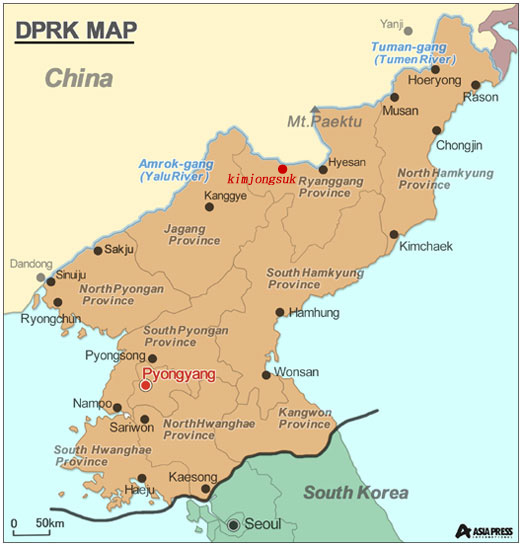
- <Inside N. Korea> The reality of the highly influential "tip-off reward system." Lots of reports due to life hardship. Mutual distrust spreads. (2021-12-22)
- <Inside N. Korea> Kim Jong-il's mourning period extended until early next year. Young people instructed: "not to laugh outside." (2021-12-20)
- Young Defector Aims to Go to Japan to Be With His Mother ― 62nd Anniversary of Repatriation Project to North Korea (2021-12-16)
- <Inside N. Korea> "Why did you kill him?" How did the residents feel about the shooting and killing of border crossers to China? We asked the residents (2021-12-14)
- <Inside N. Korea> Three Junior High School Students Drown After Ice Breaks at Factory Reservoir; Parents Fiercely Protest Factory's Heartless Response (2021-12-06)

